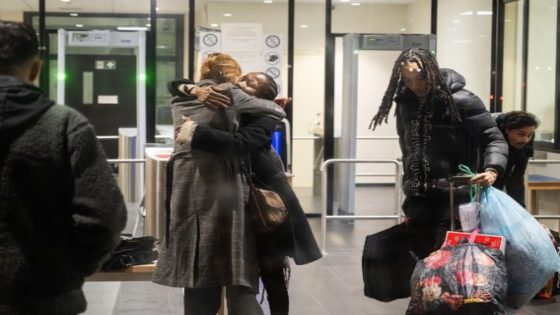On January 22, 2025, Malian singer Rokia Traoré left the Haren prison in Brussels after reaching an agreement regarding her legal issues. This development raises questions about parental rights and the future of her daughter, who has not seen her father in five years.
- Malian singer Rokia Traoré released from prison
- Legal dispute over custody of daughter
- Former partner has not seen child in five years
- Confidential agreement led to her release
- Court will review case again in June
Rokia Traoré’s Release Sparks Conversations on Parental Rights in Belgium
Why does Rokia Traoré’s release matter? Her situation shines a light on complex family law issues that resonate with many. After extensive negotiations between parties involved, she was granted freedom by the Brussels court. This case is pivotal for understanding how international custody disputes are handled.
The Legal Battle Surrounding Rokia Traoré: Key Insights
The legal dispute revolves around visitation rights concerning Traoré’s nine-year-old daughter. Here are some key points to consider:
- The daughter resides in Bamako, Mali, and has not seen her Belgian father for five years.
- Tensions escalated after Traoré was previously sentenced to two years in prison without serving time due to her appeal.
- The recent agreement allows for potential reconciliation between parents while prioritizing the child’s welfare.
- A follow-up hearing is scheduled for June to reassess the situation based on evolving circumstances.
The Journey of Rokia Traoré: From Arrest to Release
Rokia Traoré’s journey began with her arrest in Paris back in March 2020. Initially sentenced by default while abroad, she later fled to Mali but was apprehended again last summer in Italy before being extradited back to Belgium. Her release marks a significant turn as she navigates through complex legal waters surrounding family dynamics and international law.
Custody Disputes: A Global Perspective
This case highlights broader themes related to custody disputes worldwide. Many families face challenges when navigating different legal systems across borders. In this instance, both parents have strong ties to their daughter but differing views on parenting styles complicate matters further. How can such conflicts be resolved amicably?
Future Implications for Child Custody Laws
The resolution of this case could set important precedents for future child custody battles involving international elements. As society evolves, so too must our laws regarding family matters—ensuring that children’s best interests remain at the forefront of all decisions made by courts globally.

































